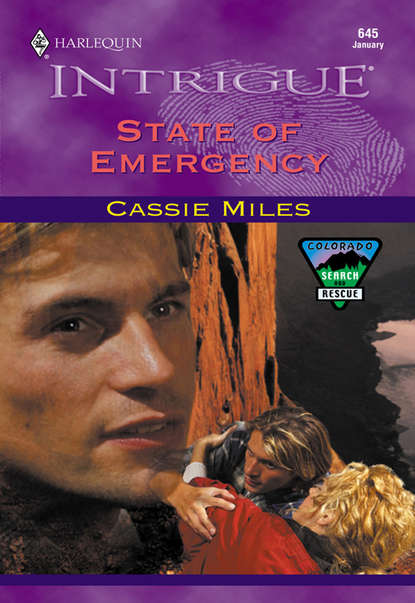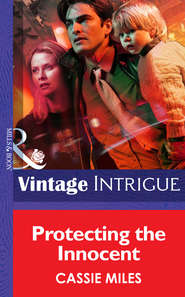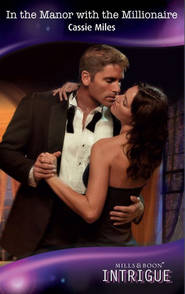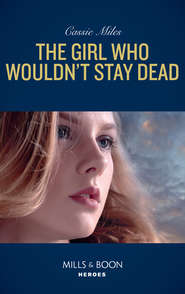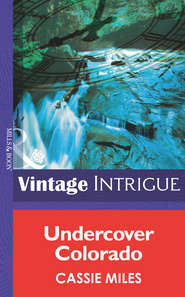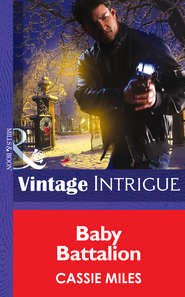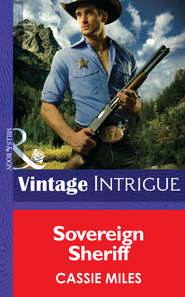По всем вопросам обращайтесь на: info@litportal.ru
(©) 2003-2024.
✖
State Of Emergency
Автор
Год написания книги
2018
Настройки чтения
Размер шрифта
Высота строк
Поля
They followed the path for less than a mile when he saw the dark square shape lurking amid the trees. Unlit, the warming hut appeared to be deserted, but Jordan held back, waiting for Pookie to make the first approach.
The dog didn’t disappoint him. In a flash of golden fur, Pookie bounded up to the cabin door, sniffed and came back to them without a single moof.
“Okay,” Jordan said. Sheer relief warmed his blood, fighting the cold that penetrated his flesh and chilled his bones. Only a few more steps. He could make it. “Now we can use the flashlights.”
The inside of the one-room warming hut was primitive, but it looked like a Hilton hotel to Jordan. The only window was tightly shuttered, but the beam of his flashlight shone on a sink and a wood-burning stove. Several futon-like mattresses were stacked in a corner. There was a grimy table and two wooden chairs. He shed his backpack and lowered himself onto the seat. The hard wood felt more comfortable than plush velour.
Emily demanded. “Unfasten my leash.”
Though he couldn’t imagine how she’d find the strength to take off running, he couldn’t give her the chance. “Not yet.”
“But I’m starving, and Pookie needs to be fed. How am I going to prepare food while I’m tethered by this stupid cord?”
He sure as hell didn’t want to shadow her movements around the cabin. Summoning his last reserve of strength, Jordan moved his chair against the door which was the only way in or out. He sat before untying the nylon rope from his belt. “Knock yourself out, Emily.”
She stretched and flexed her muscles as if she’d been bound, hand and foot. Then she got busy. Her first task was finding a hurricane lamp on a high, grimy shelf. Taking a votive candle from her pack, she struck a match and filled the glass lamp with flickering illumination.
Jordan watched through half-closed eyelids as she hustled and bustled, digging through the backpacks, assembling all her equipment. She reminded him of an exotic golden bird feathering her nest, creating a home.
Jordan exhaled slowly, using his willpower to dismiss the aches and pains of his wounded, battered body. This time, however, he didn’t retreat to memories of sultry, green Florida. He was content to be here. Emily’s presence was strangely comforting.
“Water,” she muttered. “We need water.”
A rusty hand pump stood beside the sink. Gamely, she grasped the handle and pushed down, again and again, until she was rewarded with a spurt of gritty, reddish-brown liquid. Pumping more vigorously, Emily finally achieved relative clarity. Still, she warned, “This isn’t for drinking, only washing.”
After feeding Pookie and giving him water, she assembled several unappetizing packets of freeze-dried food. “I need hot water for this.”
“No fire,” he said. Much as he’d like the heat, they couldn’t risk sending up smoke signals.
“Don’t need fire,” she said.
Her emergency supplies included a small Sternopowered hotplate. While their dinner warmed, she scrubbed the sink and wiped down the table. She also dug into her pack and produced a lightweight space blanket. “Wrap yourself in this.”
Though it hurt his masculine pride to be huddled by the door with a blanket around his shoulders, Jordan was too chilly and tired to object. He took the bottle of ibuprofen from his pocket and swallowed three. To avoid thinking about the pain, he watched Emily.
With a strange lack of typical feminine vanity, she rolled up her sleeves and scrubbed her arms. Her eyes squinted shut as she splashed water on her face. Stepping away from the sink, she unfastened her ponytail. Her curly hair billowed past her shoulders in a golden cloud. It looked soft.
Jordan rubbed his thumb and index finger together, imagining the silky texture. He wished he could take the brush from her hands and stroke through that mass of thick wonderful hair.
Without consulting a mirror, she pulled it back into a ponytail. He’d never known a woman like her—completely honest, straightforward, without artifice. She wouldn’t engage in the manipulative games most women played, and Jordan found those character traits very appealing. Maybe it wasn’t an accident that his escape route led toward Cascadia. Maybe fate had directed him to Emily.
She dished the food onto small plastic plates and added two bottles of water. “Come and get it.”
He shouldn’t leave the door, shouldn’t offer her an unguarded exit. “Take off your boots,” he said.
“What?”
“You can’t make a getaway if you’re barefoot.”
She rolled her eyes. “I’ll take off my shoes if you’ll come to the table. This isn’t gourmet dining, but the taste is better when it’s warm.”
He dragged his chair across the rough wood plank floor and joined her. After six weeks of eating alone in jail, Jordan wasn’t sure he could manage civilized conversation. “Well,” he said. “We made it.”
“You made it. This is your trip,” she reminded him. “I’m just the hostage, dragged along for the ride.”
He’d never use her as a shield, would never do anything to put her in danger. But that fact needed to remain his secret. If she had nothing to fear, she’d run from him. He took a bite of something with brown, orange and greenish lumps that vaguely resembled stew. “Not bad.”
“Be sure to drink all the water. Keeping hydrated is important.” She frowned. “I probably shouldn’t be giving you survival tips.”
“Probably not,” he said sardonically. “If you’re nice to me, I might grow on you.”
“Like a fungus.”
Undeterred, he said, “You might even start to like me.”
“I try not to get too friendly with escaped convicts,” Emily said. In spite of her hostility toward Jordan, she felt a grin begin to spread. “There’s not much future in the fugitive-hostage relationship.”
“Not true in my case,” he assured her as he scarfed down another spoonful of freeze-dried stew. “I’m innocent, and I’m going to prove it.”
His statement was so utterly artless that she couldn’t help wondering if he spoke the truth. Earlier, when he talked about his deceased wife and the lack of passion in their marriage and proposed divorce, he’d been very believable. “Earlier, you mentioned investigating in Aspen, finding the real killer.”
“That’s right.”
“What could you possibly hope to uncover?” She’d kept track of the evidence through the newspaper reports. “Sheriff Litvak himself supervised the investigation.”
“Don’t get me wrong,” Jordan said. “I don’t think Litvak was out to frame me. But once he decided I was guilty, he stopped gathering data. There’s got to be something he overlooked.”
“Like what?” She enumerated the facts on her fingers. “He has the murder weapon, a gun that was registered to your wife and has only your fingerprints. There was no evidence of a break-in at the house. And an eyewitness, the housekeeper, saw you standing over the body.”
“Kneeling,” he said. “I’d found Lynette’s body and called 9-1-1. I was kneeling beside her, trying to figure out how to do CPR or stop the bleeding.”
“You don’t know CPR?”
“I’m not an EMT like you. There was nothing I could do to save her.”
His gaze met hers, and she saw a deep sadness in his dark brown eyes. Emily had almost forgotten that Lynette Afton-Shane had been a living, breathing woman. She was more than an anonymous victim. She’d been Jordan’s wife.
He said, “From the coroner’s report, I learned that CPR wouldn’t have done any good. Lynette was shot through the heart. Her death was almost instantaneous.”
“Accurate marksmanship,” she said. “That might be a clue. Are you good with a gun?”
“Powder burns showed that she was shot at point-blank range. Not much skill required.”
From what Emily recalled of the newspaper articles, Jordan claimed to have been sleeping down the hall when his wife was murdered. “Why didn’t you hear the gunshot?”
“There was a silencer on the weapon. Plus, Lynette’s house is huge. I used to call it Hotel Afton-Shane because she generally had the sixteen bedrooms packed full with friends and family.”
“But no one else was staying there on the night she was killed.”





